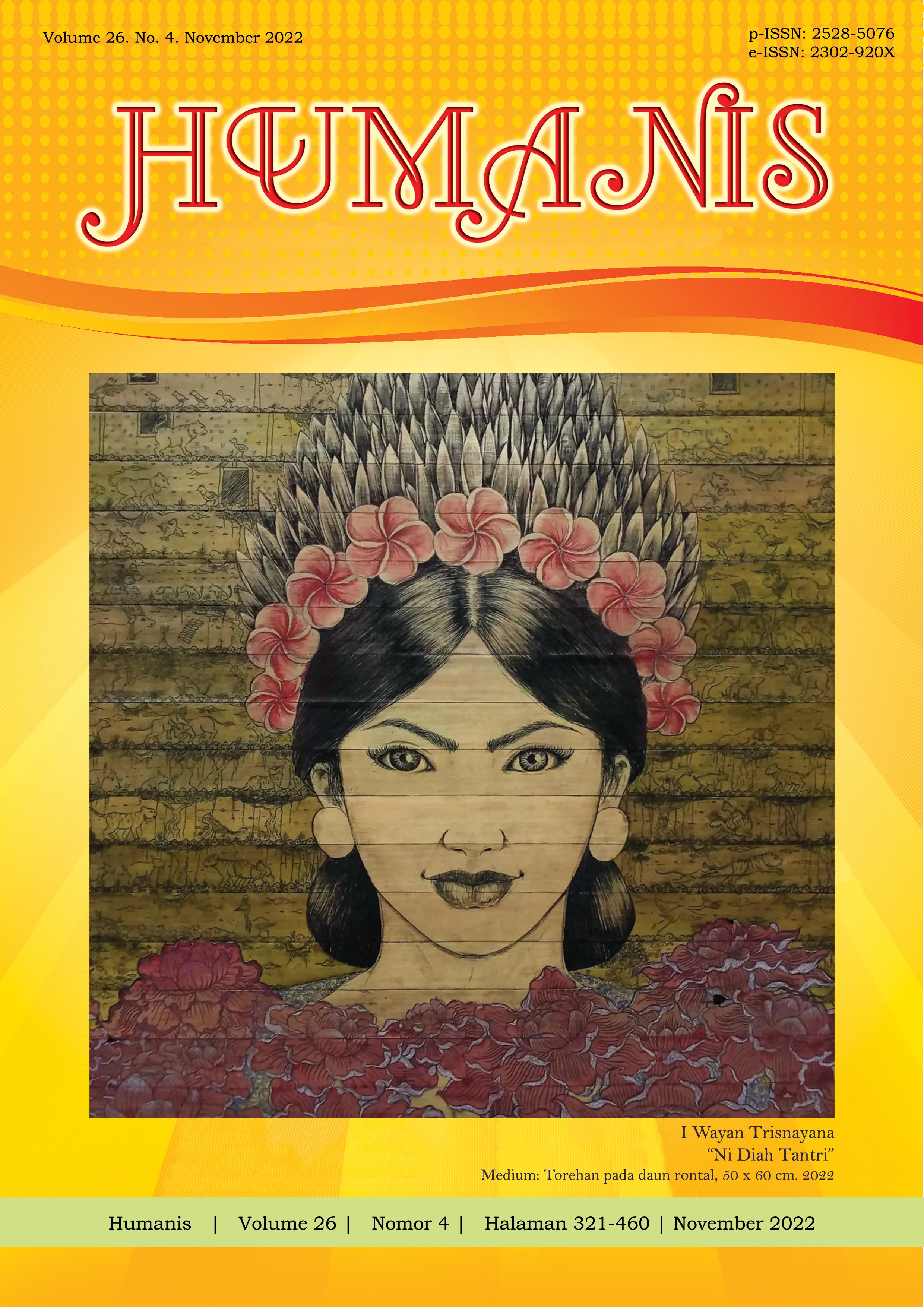Directive Illocutionary Acts of the Characters’ Utterances in “The Desperate Hour” Movie
Abstract
This study aims to describe the types of utterances of directives illocutionary act and the illocutionary forces of the characters’ utterances in “The Desperate Hour” movie. The form of data being taken is the characters’ utterances containing directive illocutionary acts. They were analyzed using the theory of speech acts proposed by Searle. It applies the descriptive qualitative method with the note-taking technique. The findings show that the interrogative and imperative types of utterances indicating directive illocutionary acts are applied in the movie. Whereas, the declarative utterances were not applied. The directives illocutionary acts show seven illocutionary forces, they are asking, commanding, inviting, begging, suggesting, requesting, and interrogating.
Downloads
References
Austin, J. L. (1962). How to Do Things with Words. Oxford University Press.
Bach, K. (1994). Meaning, Speech Acts, and Communication. Harvester Wheatsheaf.
Bach, K., & Harnish, R. M. (1979). Linguistic Communication and Speech Acts. MIT Press.
Griffiths, P. (2006). An Introduction to English Semantics and Pragmatics. Edinburgh University Press Ltd.
Gumperz, J. J. (1971). Language in Social Groups (1st ed.). Stanford University Press.
Halliday, M. A. K. (1989). Language, Context, and Text: Aspect of Language in a Social-Semiotic Perspective. Deakin University.
Hymes, D. (1972). Directions in Sociolinguistics: The Ethnography of Communication. Holt, Rinehart and Winston, Inc.
Leech, G. (1983). Principles of Pragmatics. Longman.
Levinson, S. (1983). Pragmatics. Cambridge University Press.
Lyons, J. (1981). Language, Meaning and Context. Cambridge University Press.
Mahendra, G. A. (2018). Direct and Indirect Directive Illocutionary Acts in the Movie “Penguin of Madagascar.” Jurnal Humanis, Fakultas Ilmu Budaya, 22.1. https://doi.org/10.24843/JH.2018.v22.i01.p38
Mey, J. L. (1993). Pragmatics: An Introduction. Blackwell.
Oktaviani, A., Syafitri, D., & Syafrizal. (2021). Directive Illocutionary Acts in Me Before You Movie. Linguistic, English Education and Art (LEEA), 4.2. https://doi.org/10.31539/leea.v4i2.2255
Peccei, J. S. (1999). Pragmatics. Taylor & Francis Limited.
Pratama, S. A. S., & Juniartha, I. W. (2021). AN ANALYSIS OF DIRECTIVE ILLOCUTIONARY ACT IN THE MOVIE MALEFICENT. Journal of Language and Applied Linguistics, 02.1. https://dx.doi.org/10.22334/traverse.v2i1
Putra, I. P. W. A., & Sedeng, I. N. (2022). Directive Illocutionary Acts Found in the Movies 21 and 22 Jump Street. Jurnal Humanis, Fakultas Ilmu Budaya, 26.2.
Searle, J. R. (1979). Expression and Meaning: Studies in the Theory of Speech Acts. Cambridge University Press.
Suryaningsih, A. A. I. A. (2014). The Directive Illocutionary Acts in “To Kill a Mockingbird” Screenplay by Horton Foote. Jurnal Humanis, Fakultas Ilmu Budaya, 9.1.
Thomas, J. (1995). Meaning in Interaction: An Introduction to Pragmatics. Longman.
Utami, P. K. (2018). Directive Illocutionary Acts with Special Reference to Pitch Perfect. Jurnal Humanis, Fakultas Ilmu Budaya, 22.1. https://doi.org/10.24843/JH.2018.v22.i01.p33
Wardaugh, R. (1998). An Introduction to Sociolinguistics (3rd ed.). Blackwell.
Yule, G. (1996). Pragmatics. Oxford University Press.


















